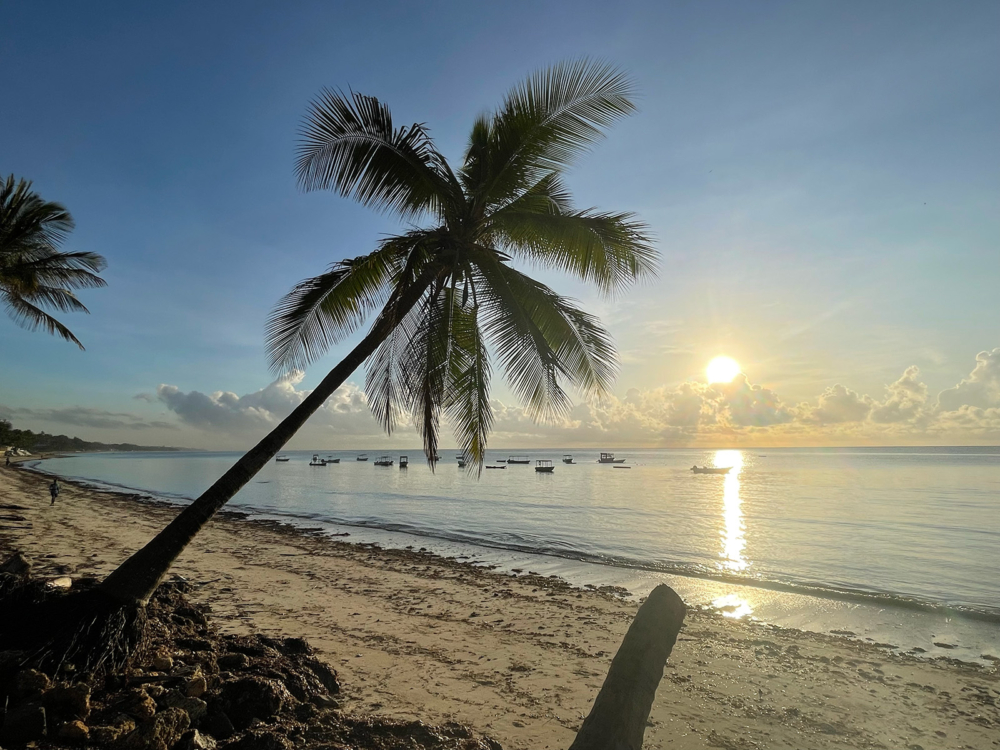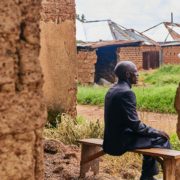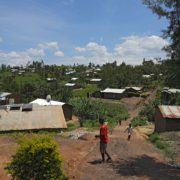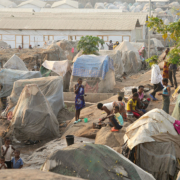Paradise, but only for some
East Africa coast and islands, aka Swahili Coast, is a place of spectacular beauty and offer some of the most exotic holiday destinations around the Globe. These off-the-beaten-track places offer the adventurous traveller remarkable landscapes, rich cultural experiences, and exotic food. But for local Christians, who form the minority in this “paradise”, the surroundings can be rather hostile. Partner, Eglan* recently visited.
A warm breeze whistling through the leaves of the tall palm trees outside the airport welcomed me to the Kenyan coast, one of the Creator’s most breath-taking masterpieces. It felt like I was at the gates of Paradise. I got into one of several bobbing taxi boats lined up outside the airport to take travellers across a narrow channel to Lamu island. I dipped my hand into the deep blue ocean and the warm salty water left a left a sticky residue.
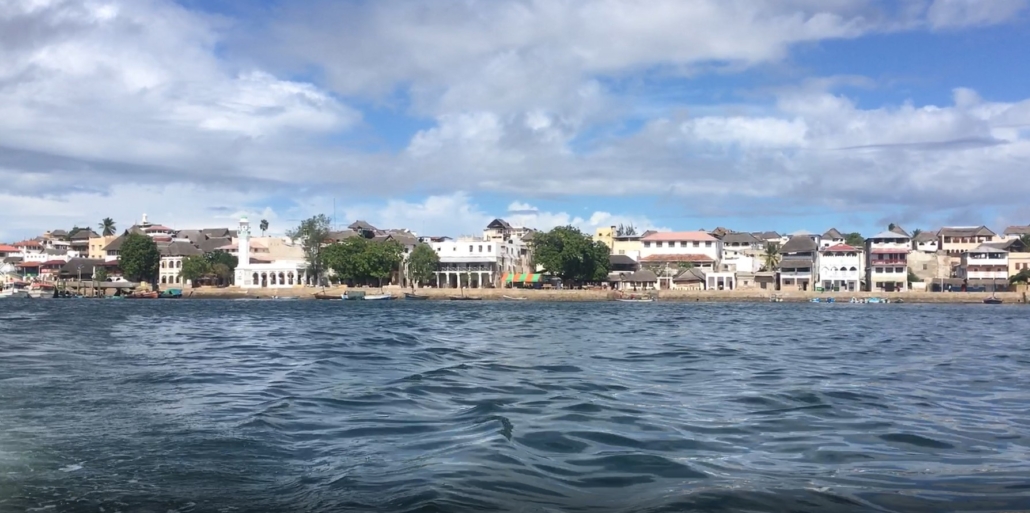
Every now and then as we crossed the narrow channel, an angry ocean current tossed the boat up and down. The island’s greenish water with its white beaches and flat-roofed and grass-thatched Swahili houses stared at us as we approached.
As I stepped off the boat, numerous narrow corridors invited me and the other arrivals to venture deeper into the settlement. So narrow was the one I took, I had to stand in a doorway to make way for a man and his two donkeys to pass.
While I waited, a wall built of coral and shells caught my eye. Next to that, a carved doorpost with handmade hinges. All of these visual delights were monuments to the amazing creativity and prowess of man and the rich culture to be sampled on this world heritage-listed island.
The heavy aroma of an exotic Swahili dish interrupted my reverie. A pair of cats looked up at me from a doorway, urging me on somehow to follow the mesmerising Taraab music to my abode to enjoy the feast awaiting me.
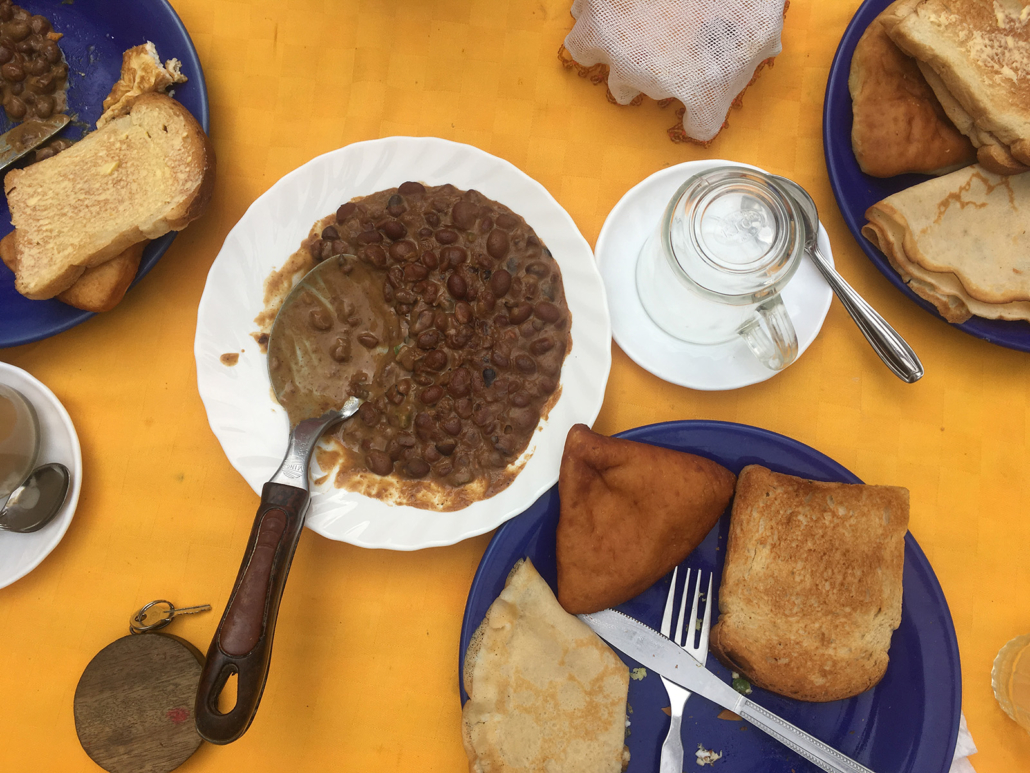
By the time I have finished eating, night was fast approaching, and I ventured back to the water to take a seat and watch the fishermen end their workday. The sun turned into a large orange ball just before it disappeared behind the horizon, smearing a confusion of pink and purple hues across the sky.
Suddenly, several muezzins shattered the silence to demand presence at evening prayer. The continuous singing echoing across the island made me realize that this mysterious place is paradise only for some.
This island falls within a stretch of coastland that Muslims dream of turning into the Sultanate it once was. Centuries ago Muslim traders fared these seas and carried to these neighbourhoods, slaves, spice, Arabic and Islam. The vision now is to establish a sharia state that starts in Somalia and reaches South as far as Sofala Province in Mozambique, devoid of any “infidel” i.e. Christian influence. Until the day they can raise an official flag over their sultanate, many Muslims of this coastline live as if it has already happened.
Life is extremely difficult for Christians living here and other areas along the Swahili coast of Kenya and Tanzania. The Somali-Kenyan border is so porous, it has been easy for extremists to cross into this area and attack Christians. In 2014 a series of attacks in this larger region left 88 Christians dead. One Christian described those days as “walking with death.”
But while violence against them come and go – a little like the tides on their beaches – the believers daily face the pressure of living here as an unwanted minority. They face things like,
- Having to relocate churches to an area close to the Country Commissioner’s home for their own protection against attacks.
- One church lost its land after a group of Muslim youths planted trees across their plot the day before they were to lay foundations for a church building. When the pastor asked what was going on, he was assaulted. The matter is in court, and since the incident construction could not resume.
- Church services are disrupted by kids (instigated by elders) throwing rocks onto the roof.Churches struggle to get approval for open air outreach meetings. A six-day campaign of one church was recently reduced to a one-day event to end before Muslim prayers started.
- Christians have no place on the island to bury their dead. A Christian couple had the body of their deceased two-month old child exhumed from the graveyard. Two years later their appeal for help remains unanswered. Although church leaders have pleaded for a solution from the government, they have still had no success.
- “While Muslim employees get time off to attend mosque, Christians don’t get time off to go to church. We only get leave at Easter,” lamented Juma*. One pastor explained, “Christians only attend fellowship when they are on leave.
- We have lost very influential choir members and other department heads because [of work commitments]. They also need to fend for their families.”
- Playing gospel music in a home rented from a Muslim can result in eviction.
- Believers from Muslim background face the most difficulties. Some have been fired from jobs for that decision and even face mocking at the market.
- At school, Christian students are regularly skipped in government bursaries. (To access the bursary, a government official must simply stamp a document. Christians say their documents hardly ever get stamped.) Manzu*, a teacher, told me how things went awry for local Christian fellowship at school after the Christian principal was replaced with a Muslim. The new headmaster stopped the Christians from conducting fellowship in the room they always used, accusing them of breaking equipment, and told them to have their meetings in the open. Because of the extreme heat, numbers dwindled so much, these meetings have been discontinued. Since his appointment, seven Christian teachers, including Manzu who was the Christian Union patron, were transferred to other schools. “It is a strategy that Muslims use to domineer institutions and see to it that Christian culture vanishes,” he concluded.
- Mercy, 24, is a Muslim background believer. When her boss found out about her conversion, he falsely accused her of stealing, and then cut her salary to one sixth of what it used to be.
- Alan, 30, works as a chauffeur and was attacked with a machete and left for dead for refusing to give a lift to a Muslim neighbor in his employer’s car (because he is not allowed to give lifts). The matter is still in court. When his employer heard he did not accept a bribe to drop the case, he was fired.
As I spent time with the believers on this island, I could not help but be struck by the contrasts around me. The vibrant culture here and elsewhere along the Swahili coast offers any traveler an exceptionally rich experience, undoubtedly causing enjoyment of diversity and adventure.
Yet, at the same time there is community of believers who are constantly under pressure to convert to Islam and be rewarded richly with social acceptance and economic inclusion. These believers probably won’t describe themselves as a bold or vibrant expressions of the Body of Christ. But they are there – quietly shining a light (albeit it weak and flickering at times) for Christ in the surrounding darkness, among people who regard them as enemies, knowing most of the fruits of their labor will only be revealed in eternity.
Pray
Our family who live here and other regions on the exotic east African coast deserve our partnership in prayer, presence and support.
- Be aware of the circumstances of the local church
- Pray for indigenous and “imported” Christians to be able to withstand the pressures of being treated like second-class citizens.
- Pray for wisdom and courage to live out clear testimonies for Christ as they interact with Muslim neighbours and authorities.
- Pray for new believers who have been rejected by family for their faith, to be well rooted in the faith and find a sense of belonging in the Christian community
- Pray for much grace for church leaders as they care for their church members
- Pray for the work of the Church in these areas to glorify God and help strengthen the witness of the Church.
* Names changed to protect identities

